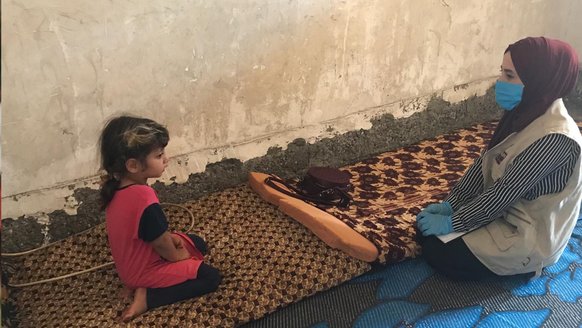Filling the Gaps to Include the Most Vulnerable in Jordan
May 20, 2020
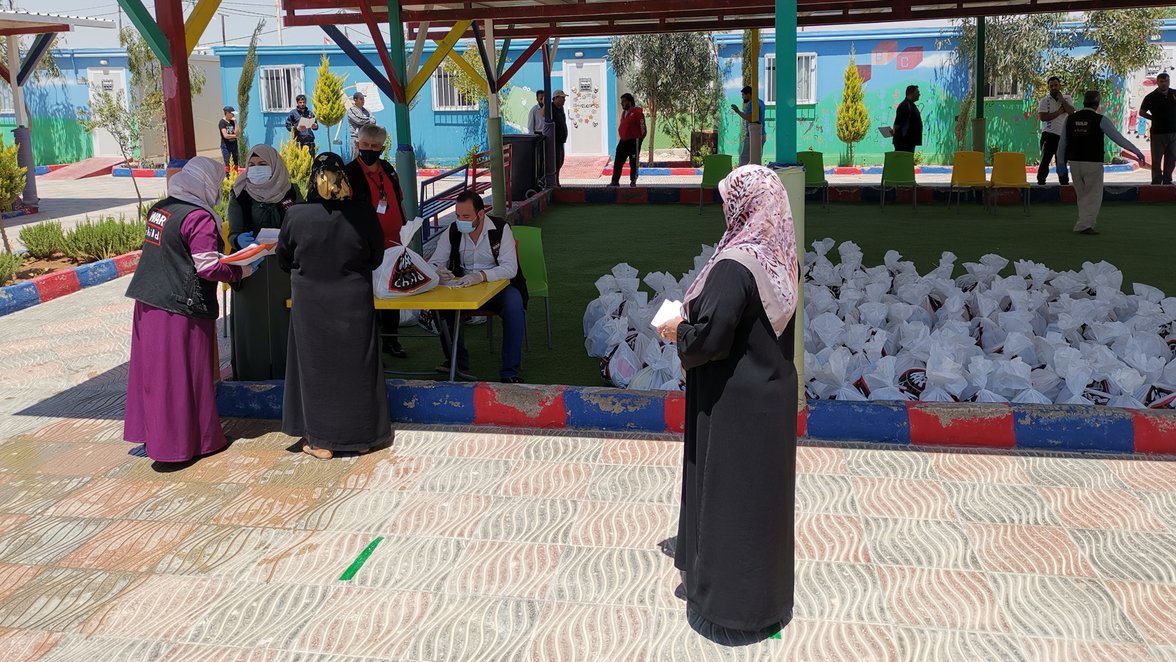
In response to the global COVID-19 pandemic, the Jordanian government has taken a number of decisive measures. Although these restrictions are felt by some to be extreme, they are also widely recognised as effective - to date the number of confirmed COVID-19 cases is just over 613 cases, of which 131 are active.
Our team in Jordan has conducted a rapid needs assessment as part of its coronavirus response activities - and has identified a number of gaps in terms of support offered to the most vulnerable communities.
In the Jordanian Emirati Camp (also known as the Mrajeeb Al Fhood refugee camp) - home to 6,502 Syrian refugees - needs are particularly acute. A number of personal hygiene items were identified as absent, along with educational stationary items. To cover all families in the camp, we recently distributed 1,150 care kits in coordination with the Emirati Red Crescent, UNICEF and Jordanian authorities.
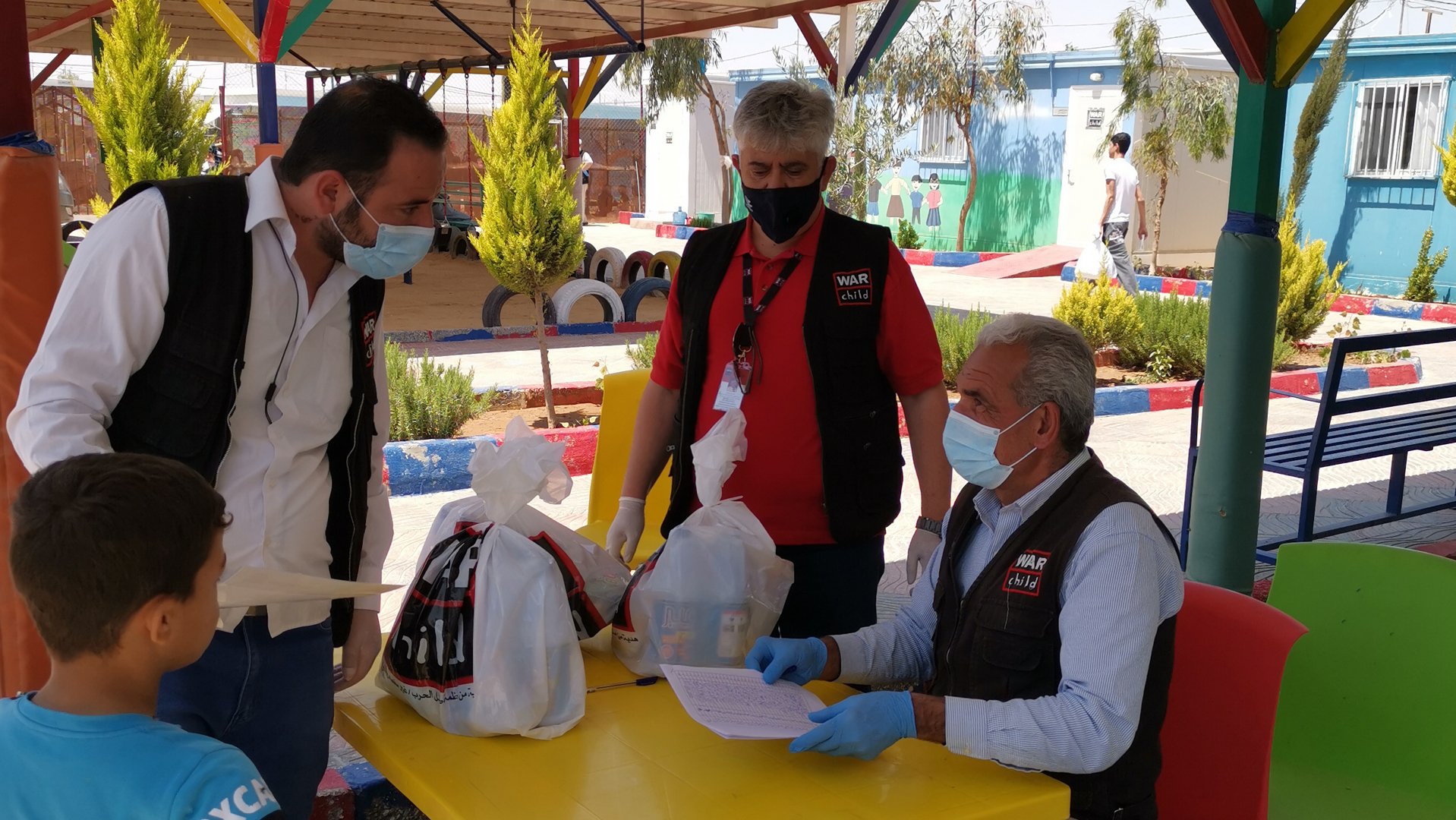
A man living in a refugee camp retrieving a hygiene kit.
Photo: War Child
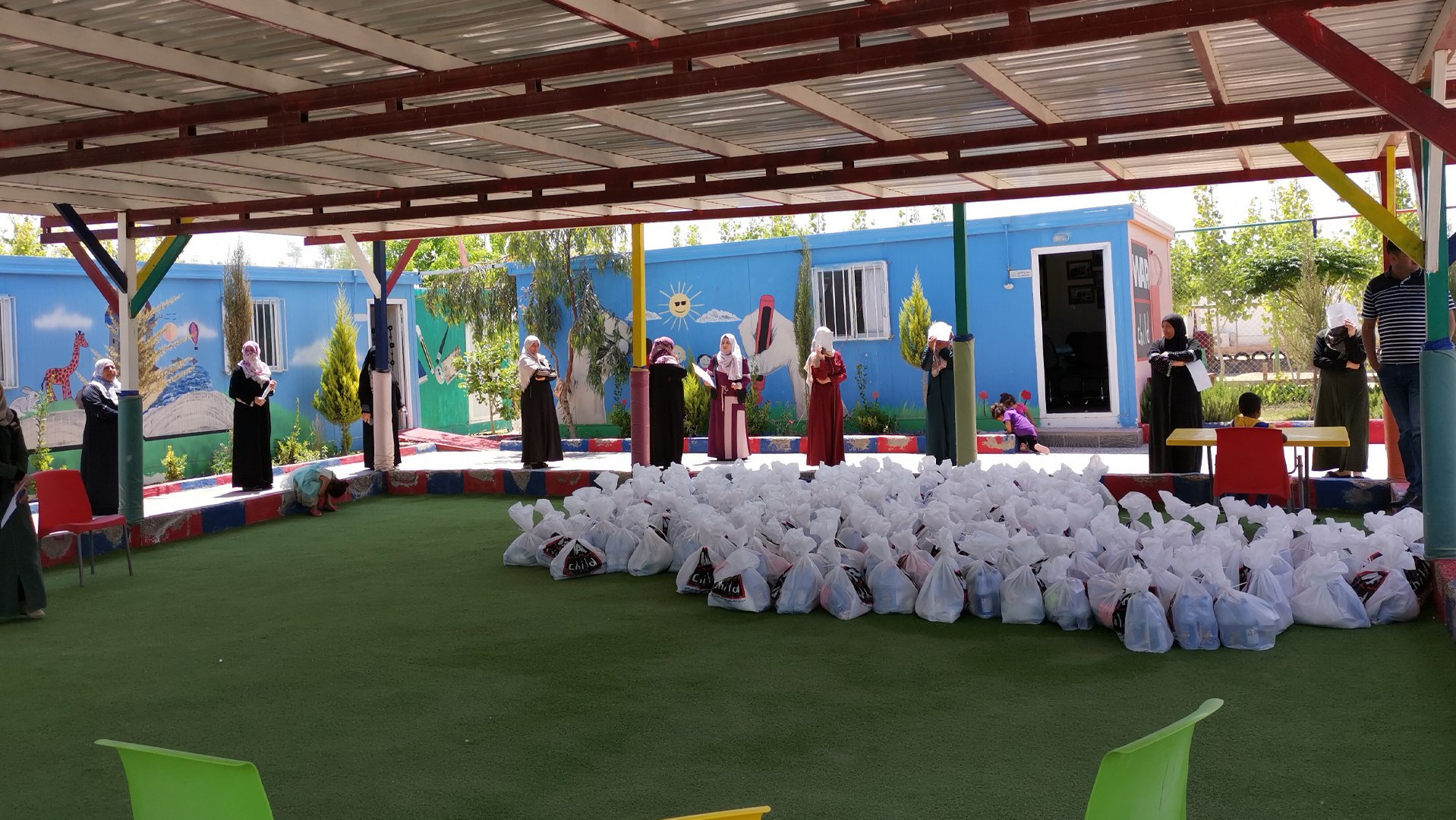
People standing in line to receive a hygiene care kit.
Photo: War Child
Our Jordan programme
War Child has been present in the camp since November 2017 and is currently the only active iNGO in the camp. We offer families and their children Early Childhood Care and Development (ECCD) as well as psychosocial support (PSS) sessions, through specialist facilitators together with Syrian volunteers.
These activities are usually offered in the camp’s War Child Safe Space, known to the refugee community as ‘Al-Rawda’ - a reference to ‘kindergarten’ in Arabic. The Arabic name came from the fact that children aged from four to six are the primary focus of our activities. We have also moved to adapt our programme to the realities of the coronavirus pandemic - adapting our education curriculum to be shared remotely by video and via WhatsApp groups.
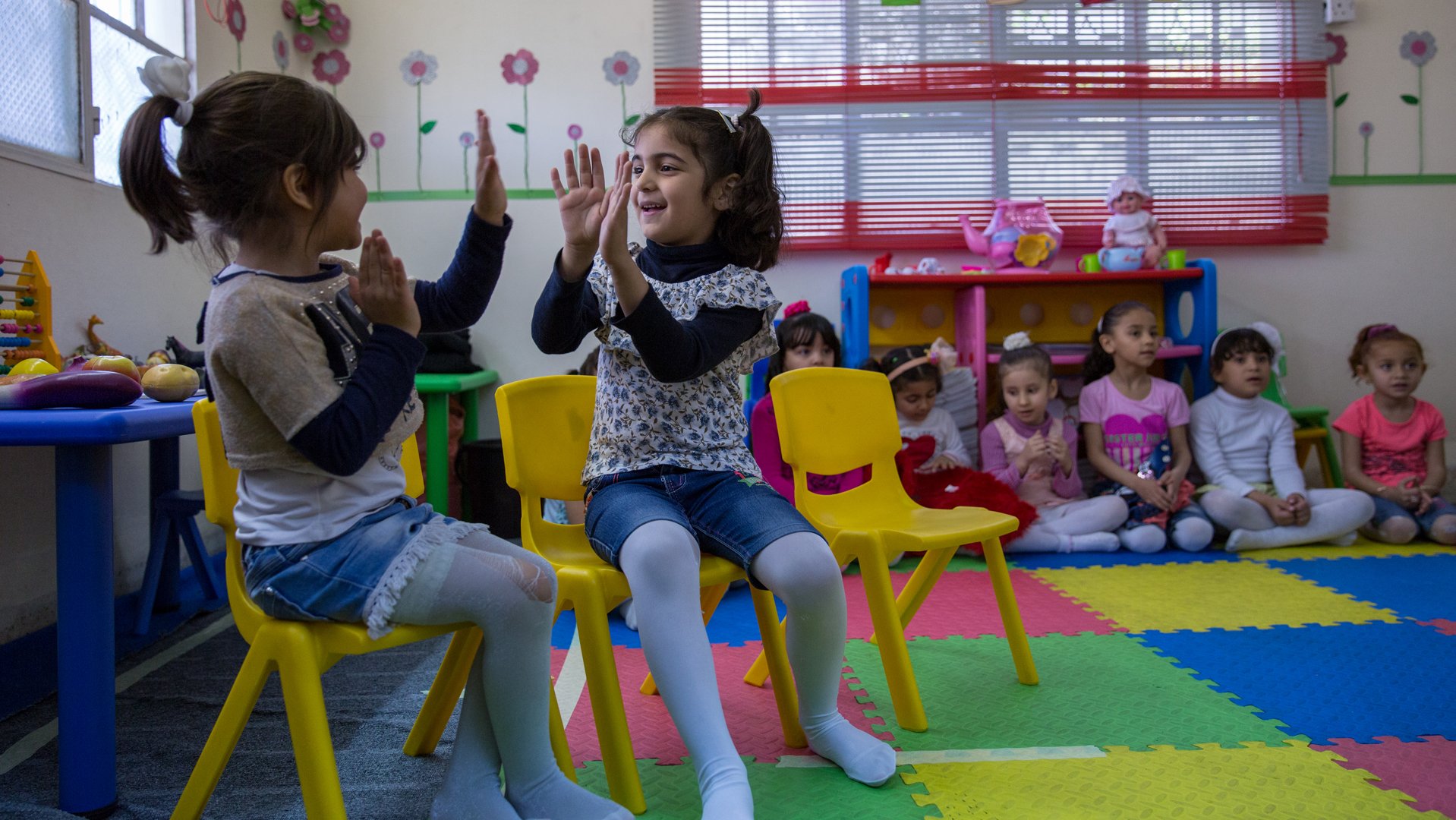
Girls in our Safe Space 'Al-Rawda' when the coronavirus and the movement restrictions were non-existent.
Photo: War Child UK
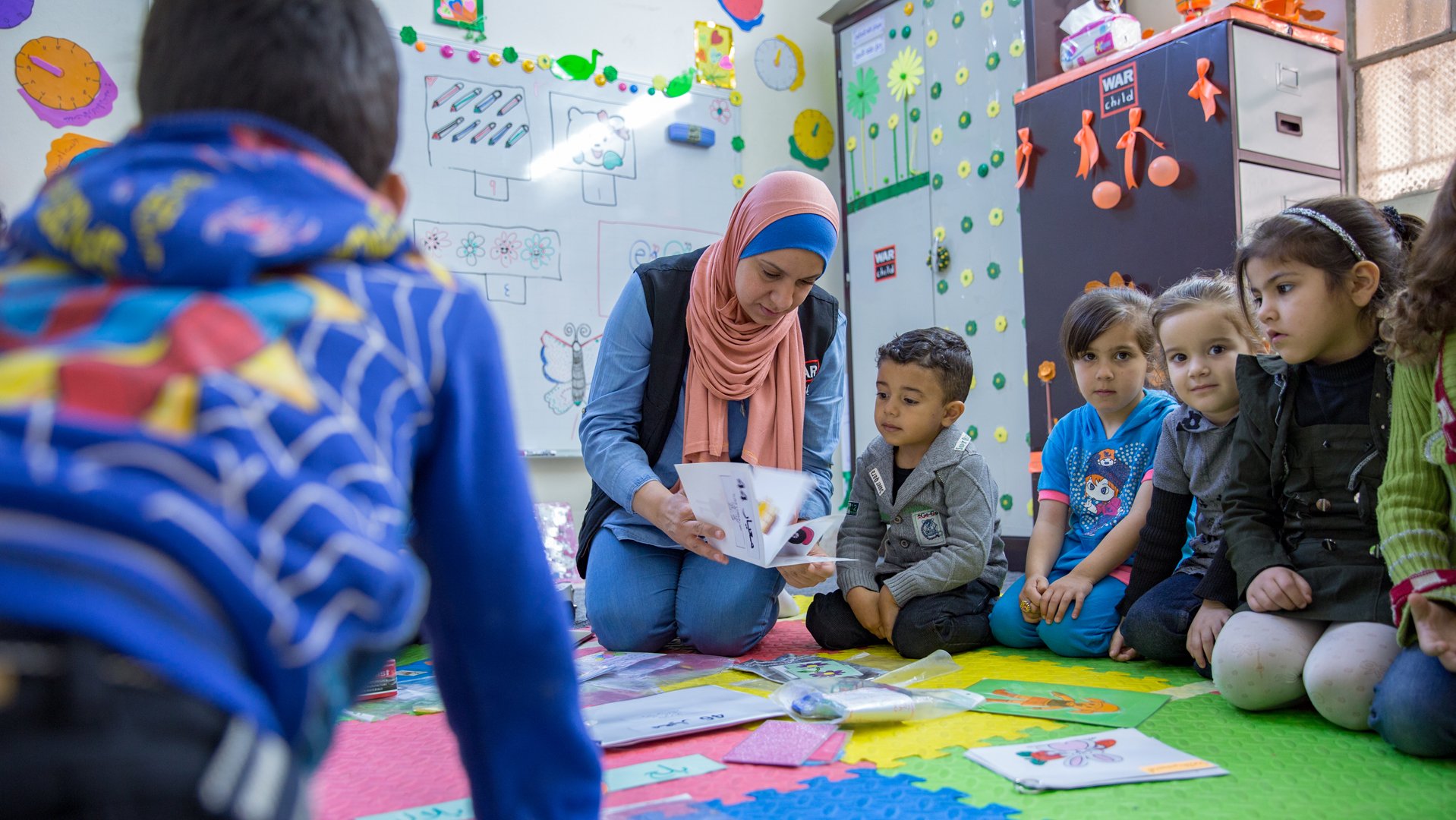
Hanan in the Safe Space when she could still teach ECCD classes.
Photo: War Child UK
As part of War Child’s active presence in the national coordination networks and working groups, another community has been identified as vulnerable - The King Abdallah Park Camp, designated for Syrian refugees of Palestinian origin. The camp residents live on the aid provided by relief organizations to meet their basic daily needs.
In cooperation with UNICEF in Jordan, 150 families were reached with the War Child care kit. Due to coronavirus restrictions, and the limited means of connectivity available to the residents of the camp, we are also, together with UNICEF, exploring ways to reach families through our adapted education activities - including the tablet-based education programme Can’t Wait to Learn.
The relatively small War Child team in Jordan has stressed the importance of maintaining a proactive presence in both local and national coordination bodies during the current crisis. This has seen our response focus on gaps identified collectively and efforts to prevent the duplication of services. Our advocacy activities call emphatically for the inclusion of the most vulnerable and the least served communities in humanitarian coronavirus response activities.
